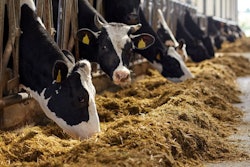Focusing on biosecurity gap in U.S. swine production
Ten research projects have been funded as part of the Swine Health Information Center’s Wean-to-Harvest Biosecurity Program in collaboration with the Foundation for Food & Agriculture Research and the Pork Checkoff. Each project is designed to achieve the objectives of cost-effective, innovative solutions for a significant biosecurity gap in U.S. swine production. Institutions receiving awards in this first round of funding are Iowa State University, Carthage Veterinary Service, North Carolina State University, the University of Minnesota, and Swine Vet Center. Real-time results of round one projects will be shared as quickly as they become available, and another planned proposal solicitation round will be coming soon to seek further projects addressing the research priorities identified by industry task forces.
The Wean-to-Harvest Biosecurity Program reflects SHIC’s responsiveness to an identified health vulnerability and collaborative effort to stretch SHIC’s producer Checkoff funds to safeguard the health of the U.S. swine herd. Proactively enhancing wean-to-harvest biosecurity will help control the next emerging disease in the U.S. pork industry, part of SHIC’s mission.
Titles of round one Wean-to-Harvest Biosecurity Program projects awarded include:
Transportation Biosecurity
- Evaluating the effects of alternative livestock trailer cleaning methodologies on the relative risks of introducing diseases (PEDV) to farm sites when loading out hogs to terminal points of concentration
- Evaluation of readily available technologies for truck cabin decontamination
- Creating a truck automated sanitation classification (TASC) platform using multiple data recording approaches currently used in the swine industry – a pilot and scalable study
- Ensuring site and transportation biosecurity using bioluminescence
- Rerouting between-farm transportation vehicle movements to minimize the dissemination of endemic and emerging diseases in North America
Site Biosecurity
- Assessment of manure pumping effects on disease onset in wean-to-finish pig sites
- Evaluation of electrostatic precipitation for biocontainment of viral and bacterial pathogens emitted from finishing facilities
- Development and evaluation of an electrostatic precipitator (ESP) prototype to mitigate airborne spread of pathogens under farm conditions
- Evaluation of deployable fan coverings for biocontainment of airborne swine pathogens
- Industry-wide assessment of bioexclusion practices in wean-to-harvest sites, and development and validation of a rapid risk assessment bioexclusion tool
SHIC, FFAR and Pork Checkoff launched the two-year Wean-to-Harvest Biosecurity Program in the fall of 2022. The first call for research proposals was announced in October 2022 with the goal of investigating cost-effective, innovative technologies, protocols, or ideas to enhance biosecurity during the wean-to-harvest phases of swine production. Round one projects are expected to start March 2023.
Funding for the Wean-to-Harvest Biosecurity Program comes from SHIC, as well as FFAR and Pork Checkoff. A pool of approximately $2.3 million is available for the program, with approximately $1 million being awarded to the first round of projects.
A second call for research proposals will be announced soon with the goal of addressing a targeted set of research priorities, all with the mission of improving an identified vulnerability to swine health. Information on the second call for proposals will be shared by SHIC and posted on its website.












